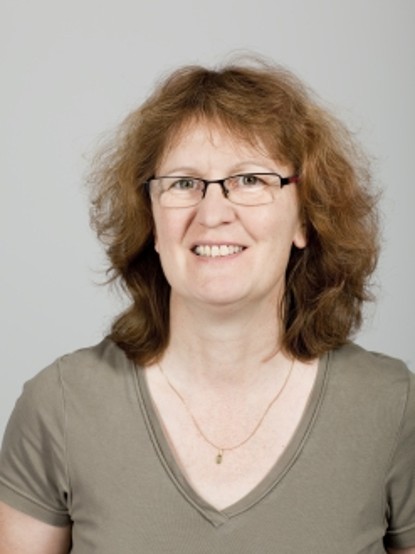Save the date
OpenFOAM Short Course on Multiphase Flows
20–23 March 2023
Course description and aims
OpenFOAM® is a widely spread open-source C++ library and a powerful software platform for solving a variety of problems in computational continuum physics including computational fluid dynamics (CFD) and multiphysics applications. The three-and-a-half-day short course on multiphase flow simulations with OpenFOAM will cover the theoretical basis of multiphase flow approaches:
- Model fundamentals
- Numerical methods
- OpenFOAM solver families
- OpenFOAM’s multiphase capabilities
Furthermore, the course aims at providing a distinctive overview over cutting-edge method developments going on in the international OpenFOAM community. Thus, the course goes beyond what standard OpenFOAM provides and gives attendees the unique opportunity to acquire the knowledge and method competence required to tackle challenging multiphase flow problems.
This year’s special topics cover
- Sharp interface methods
- Diffuse interface methods
- Eulerian-Eulerian multi-fluid methods
- The discrete element method
The program is intended to stimulate intensive discussions between the participants and the lecturers as well as between the participants themselves. The aim is to address on-going developments as well as to discuss application problems.
Programme
| Fundamentals 1(2) | |
| 13:30 | Registration |
| 14:00 |
Welcome, Introductions, Overview of the Course (Tomislav Marić, Holger Marschall) |
| 14:15 |
Direct Numerical Simulation Methods – Modeling Fundamentals (Dieter Bothe) |
| 15:15 | Group Photo and Coffee |
| 16:00 |
Direct Numerical Simulation Methods – Numerical Approaches (Dieter Bothe) |
| 17:00 |
OpenFOAM’s Multiphase Capabilities (Hrvoje Jasak) |
| 18:00 | Close of First Day |
| Fundamentals 2(2) | |
| 9:00 |
Discrete Element Methods – Modeling Fundamentals (Kimiaki Wahino) |
| 10:00 | Coffee |
| 10:30 |
Eulerian-Lagrangian Flow Methods – Modeling Fundamentals (Martin Sommerfeld) |
| 11:30 |
Eulerian-Eulerian Flow Methods – Modeling Fundamentals (Alberto Passalacqua) |
| 12:30 | Lunch |
| Dispersed Flows | |
| 13:30 |
Modeling Polydispersity in Gas-Liquid Systems with Population Balances (Alberto Passalacqua) |
| 14:30 |
Modeling the Evolution of Nanoparticles and Microparticles in Turbulent Reactive Flows (Federica Ferraro) |
| 15:30 | Coffee |
| 16:00 |
Modeling Turbulent Chemically Reacting Sprays (Tommaso Lucchini) |
| 17:00 | Close of Second Day |
| 19:00 | Short Course Dinner |
| Interfacial Flow | |
| 9:00 |
Arbitrary-Lagrangian-Eulerian Method (Željko Tuković) |
| 10:00 | Coffee |
| 10:30 |
The isoAdvector Volume-Of-Fluid Method (Johan Rønby) |
| 11:30 |
Unstructured Geometrical Un-split Volume-Of-Fluid Methods (Tomislav Marić) |
| 12:30 | Lunch |
| 13:30 |
Modeling Phase-Transition in Volume-Of-Fluid Methods (Henning Scheufler) |
| 14:30 |
Data-driven Modeling and Validation of Reactive Mass Transfer at Rising Bubbles (Andre Weiner) |
| 15:30 | Coffee |
| 16:00 |
Compressible Multiphase Flows (Hrvoje Jasak) |
| 17:00 | Close of Third Day |
| Wetting & Contact Line Treatment | |
| 9:00 |
Wetting in Discrete Element Methods for Gas-Liquid-Solid Three-Phase Flows (Kimiaki Washino) |
| 10:00 | Coffee |
| 10:30 |
Dynamic Wetting Simulations Using the Phase-Field Method (Holger Marschall) |
| 11:30 |
Dynamic Wetting and Surfactant Transport using the VOF Method (Thomas Antritter) |
| 12:30 | Lunch |
| 13:30 |
Modeling and ALE-based Simulation of Dynamic Wetting (Mathis Fricke) |
| 14:30 |
Multiphase Transport in Real Pore Geometries (Julien Maes) |
| 15:30 | Close of Short Course |
Discuss developments and application problems
The program is intended to stimulate intensive discussions between the participants and the lecturers as well as between the participants themselves. The aim is to address on-going developments as well as to discuss application problems.
Who should attend?
This course is directed towards researchers in academia, R&D researchers in industry as well as practicing engineers involved in the simulation of multiphase flows with OpenFOAM. Participants receive all the materials in electronic version. The course is designed to impart crucial background knowledge and method competence by covering fundamentals and providing a unique overview over ongoing developments of renowned members of the international OpenFOAM community.
Venue
Technical University of Darmstadt
Center of Smart Interfaces
Building L2|06 on Lichtwiese Campus
Alarich-Weiss-Straße 10
64287 Darmstadt, Germany
Participants are requested to make their own accommodation arrangements. For a recommendation of hotels or further information, please contact Ms. Monika Medina (monika.medina-espana@tu-darmstadt).
Fees and registration
To register for this short course, please fill in the online form below.
The fee for participation from industry is 600 EUR and 300 EUR for participants from academia. The fee is exempt from VAT according to § 4 No. 22a UStG. A charge of 50 EUR applies to cancellations up to the start of the course. The fee includes the electronic documentation of the lectures, coffee breaks, lunches and a course dinner on the second day.
Registration is no longer possible
Unfortunately, this course is fully booked. Please check our website for future editions of this course.


